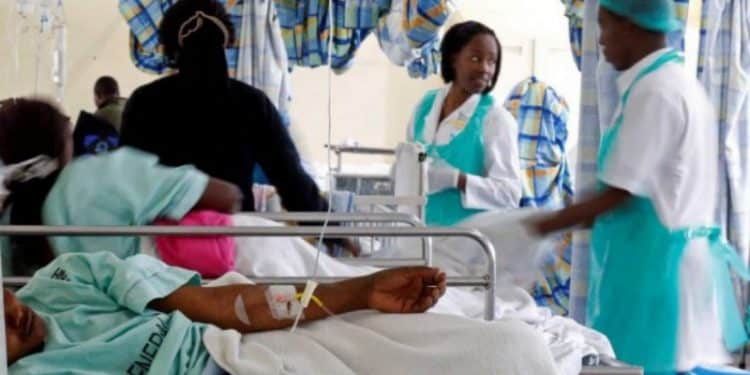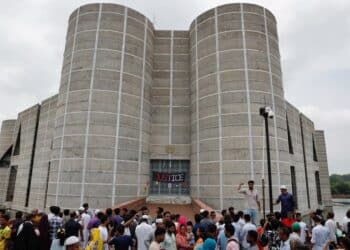The Federal Capital Territory Administration, has intensified community sensitisation on cholera and other severe acute diarrhea diseases outbreaks in the nation’s capital, as death toll leaps from 54 to 60.
FCT Minister of State, Dr. Ramatu Tijjani Aliyu, who spoke at the continuation of community sensitisation on cholera and other severe acute diarrhoea diseases outbreaks in Pyakasa and Gwagwa respectively, also revealed that suspected cases have risen from 604 to 698 within 72 hours.
The minister who was represented by the Ag. Executive Secretary of FCT Primary Health Care Board, Dr. Iwot Ndaeyo, noted that Abaji area council records 3 suspected cases, no death, Abuja Municipal Area Council (AMAC) records 281 suspected cases with 22 deaths, while Bwari Area Council records 134 suspected cases with 22 deaths.
Also, Gwagwalada area council records 220 suspected cases with 9 deaths, Kuje area council records 23 suspected cases with 4 deaths and Kwali area council records 37 suspected cases with 3 deaths.
Aliyu, however, vowed that this ugly trend was unacceptable in the Federal Capital Territory, adding that the administration would not fold its hands and watch residents die helplessly over preventable diseases.
According to her, “We must take every necessary steps to curb further spread”, just as she urged FCT residents and critical stakeholders to publicize the message of cholera disease prevention, proper sanitation with practice of hand hygiene in their respective communities.
In his remarks, chairman of Abuja Municipal Area Council (AMAC), Hon. Abdullahi Adamu Candido, affirmed the commitment of his council to forestall continuous spread of the disease to adjoining and other communities.
He added that the Primary Health Care Department of the council had embarked on sensitization tour to all the four chiefdoms in AMAC so as to enlighten the traditional rulers and their councils about the cholera outbreak and preventive measures.
Candido, therefore, commended the professional competence, commitment and zeal of the council’s health workers and the Health and Human Services Secretariat of the FCTA in combating life-threatening disease.










